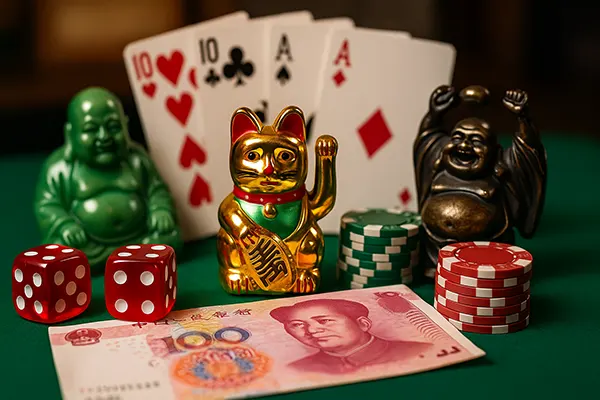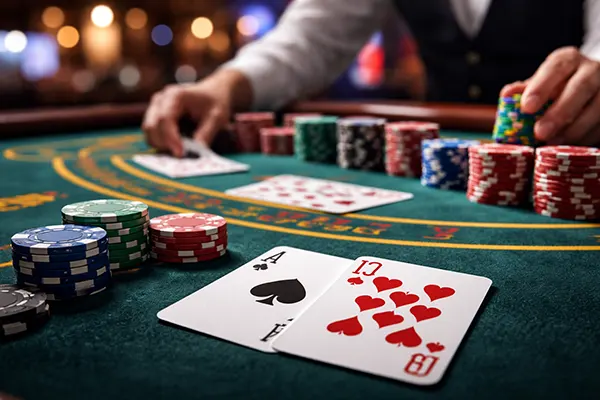Azart Across Borders: The Strangest Gambling Superstitions Worldwide
Superstitions have always accompanied games of chance, shaping the behaviour of players in various countries. From lucky charms to bizarre rituals, these practices reflect cultural beliefs and personal hopes for success. Below is an exploration of the most unusual gambling superstitions around the world, showing how traditions still influence modern gambling habits.
Asian Traditions and Rituals for Good Fortune
In many parts of Asia, gambling is intertwined with centuries-old traditions that emphasise respect for spirits and the attraction of good fortune. In China, for example, red clothing is commonly worn when gambling as the colour symbolises prosperity and happiness. Players often carry small red envelopes with lucky symbols to attract financial success during games.
Another well-known superstition in China involves the timing of gambling sessions. Many gamblers prefer to play during certain lunar calendar dates believed to bring luck, especially during the Lunar New Year period. It is also considered unlucky to mention the word “book” in Cantonese before playing, as it sounds like “lose”.
In Japan, some gamblers avoid cutting their fingernails before visiting a casino, believing it could symbolically cut away their luck. This practice is linked to older folk beliefs about personal energy and fortune being stored in nails and hair.
Symbolic Charms and Sacred Objects
Across Asia, gamblers frequently carry amulets, charms, or small statues linked to luck and protection. For instance, Thai players often keep miniature Buddha figures or lucky coins in their pockets when entering a gaming hall. These items are thought to create a spiritual shield against bad luck and misfortune.
In the Philippines, some gamblers whisper short prayers to their guardian saints before placing their bets. This religious element is seen as a way to balance risk with divine guidance, ensuring that decisions are made with a clear mind and moral intent.
South Korean gamblers sometimes wear specific coloured socks, with green symbolising growth and fortune. Though it may seem trivial, colour symbolism plays a strong role in shaping behaviour during games of chance in many Asian cultures.
European Beliefs: Balancing Rationality with Ritual
European gamblers are often considered rational and strategy-driven, yet even they maintain long-standing superstitions. In Italy, for example, the number 17 is widely feared as unlucky, so players avoid using it in lotteries or betting combinations. This stems from Roman numerals: XVII can be rearranged to spell “VIXI”, meaning “I have lived”, which implies death.
In the United Kingdom, some players bring personal lucky tokens such as old coins or childhood trinkets to games. These objects are believed to carry personal energy and provide confidence, especially during competitive card games or betting events.
French gamblers are known for knocking on wood before making a wager. This gesture is thought to ward off bad spirits and prevent misfortune, and it has spread beyond gambling into many areas of French daily life.
Pre-Game Rituals and Avoided Actions
Many European gamblers follow ritualistic behaviours before a game begins. For example, in Spain, some players refuse to cross their legs at the table as it is thought to block good fortune from reaching them. This small physical gesture has become an unconscious habit for many regular players.
In Germany, it is considered bad luck to count your potential winnings aloud before the game ends. This belief reflects a cultural emphasis on humility and patience, warning that overconfidence may anger fate and reverse fortunes.
Another peculiar habit appears in Eastern Europe, where some players will not allow others to touch their shoulder during a game. This is seen as disrupting their energy or concentration and therefore diminishing their luck.

American Superstitions: Mixing Pop Culture and Personal Rituals
In North and South America, gambling superstitions often blend cultural heritage with modern pop influences. In Las Vegas, for example, many players believe in entering casinos through the main door and never the side exits, as it symbolises starting with open opportunities and not slipping away unnoticed by fortune.
Latin American gamblers sometimes place small figurines of frogs near their playing area. Frogs are widely considered symbols of wealth and positive transformation, rooted in indigenous folklore and later reinforced through local traditions.
Some professional poker players in the United States wear the same clothing items during winning streaks, such as a particular cap or wristband. This practice is based more on personal superstition than cultural tradition, yet it demonstrates how easily routine can turn into ritual when luck is involved.
Lucky Gestures and Habits During Play
American players often develop small physical gestures they repeat before or during play. This might include tapping the table twice before drawing cards or spinning a chip three times in their hand before placing a bet. These repetitive actions provide psychological comfort, making the player feel more in control.
In Canada, some gamblers are careful to avoid lending money or chips during a session. The belief is that giving away part of your stake also gives away part of your luck, reducing your chances of success during that game.
Caribbean gamblers occasionally sprinkle a few drops of rum on the floor before placing their first bet of the night, honouring ancestral spirits and asking for their blessing. This tradition combines local cultural beliefs with modern gambling practices.
Similar articles
-
 Cascading Wins: Why Winning Stre...
Cascading Wins: Why Winning Stre...Anyone who has spent time in a casino, whether online or land-based, has …
-
 Should you play a slot demo to t...
Should you play a slot demo to t...Demo mode is a useful way to understand how a slot works without …
-
 Optimal Bet Size for a Long Sess...
Optimal Bet Size for a Long Sess...Long casino sessions are rarely lost because of one “bad beat”. More often, …
-
 Why Card Counting Appears More E...
Why Card Counting Appears More E...Card counting has long been associated with an image of control, logic, and …
